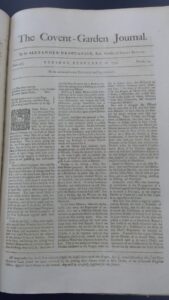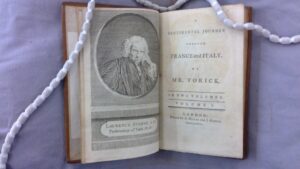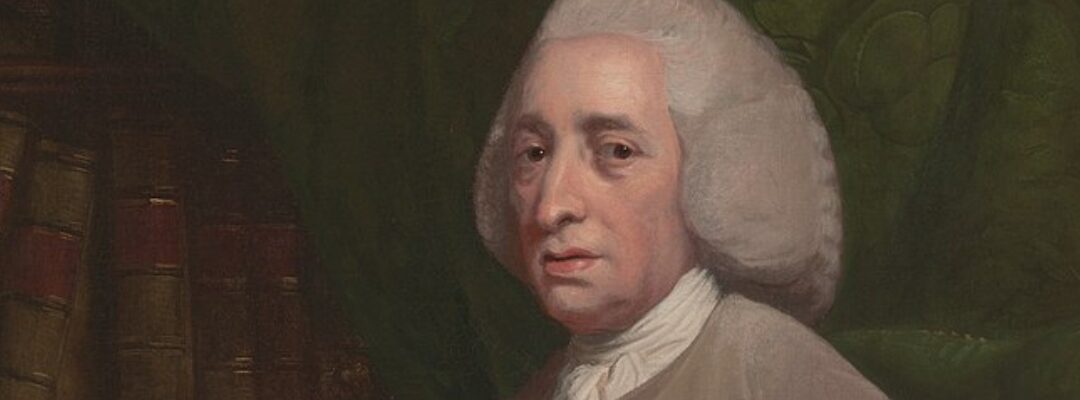Smollett’s contemporaries

Henry Fielding, The Covent-Garden Journal (London: Mrs. Dodd, 1752), [S.L.] I [Fielding – 1752] fol.
Although Henry Fielding and Tobias Smollett may never have met each other in person, they were aware of each other and each other’s work. Smollett, possibly jealous of the older man, attacked him in Peregrine Pickle (1751). Shown here is The Covent-Garden Journal, the journal which, under the name of Sir Alexander Drawcansir, Censor of Great Britain, Fielding issued twice a week in 1752. Fielding used the journal to attack foibles and vice. In the second issue he included Smollett in his ‘Paper War’ on the armies of Grub Street, suggesting that Smollett was the epitome of Grub Street and referring to ‘Peeragrin Puckle’ and ‘Rodorick Random’. Smollett retaliated with the pamphlet A Faithful Narrative of the Base and Inhuman Arts that were Lately Practised upon the Brain of Habbakkuk Hilding [i.e. Henry Fielding] … Who Now Lies at his House … in a Deplorable State of Lunacy (1752; also at Senate House Library).

Laurence Sterne, A Sentimental Journey through France and Italy (London: A. Millar and J. Hodges, 1782), [D.-L.L.] (XVIII) Bc [Sterne]
Laurence Sterne (1713-1768) was one of the many literary contemporaries with whom Tobias Smollett was acquainted. Sterne and his wife met up with Smollett and his wife several times in Montpellier, while both couples were travelling in France. Sterne’s description of his travels, A Sentimental Journey, first appeared in 1778, two years after Smollett’s Travels through France and Italy. In it Sterne named Smollett ‘Smelfungus’ and portrayed Smollett as a stereotypical prejudiced and grumbling British traveller. Sterne’s depiction resulted in a lessening of popularity of Smollett’s Travels.

